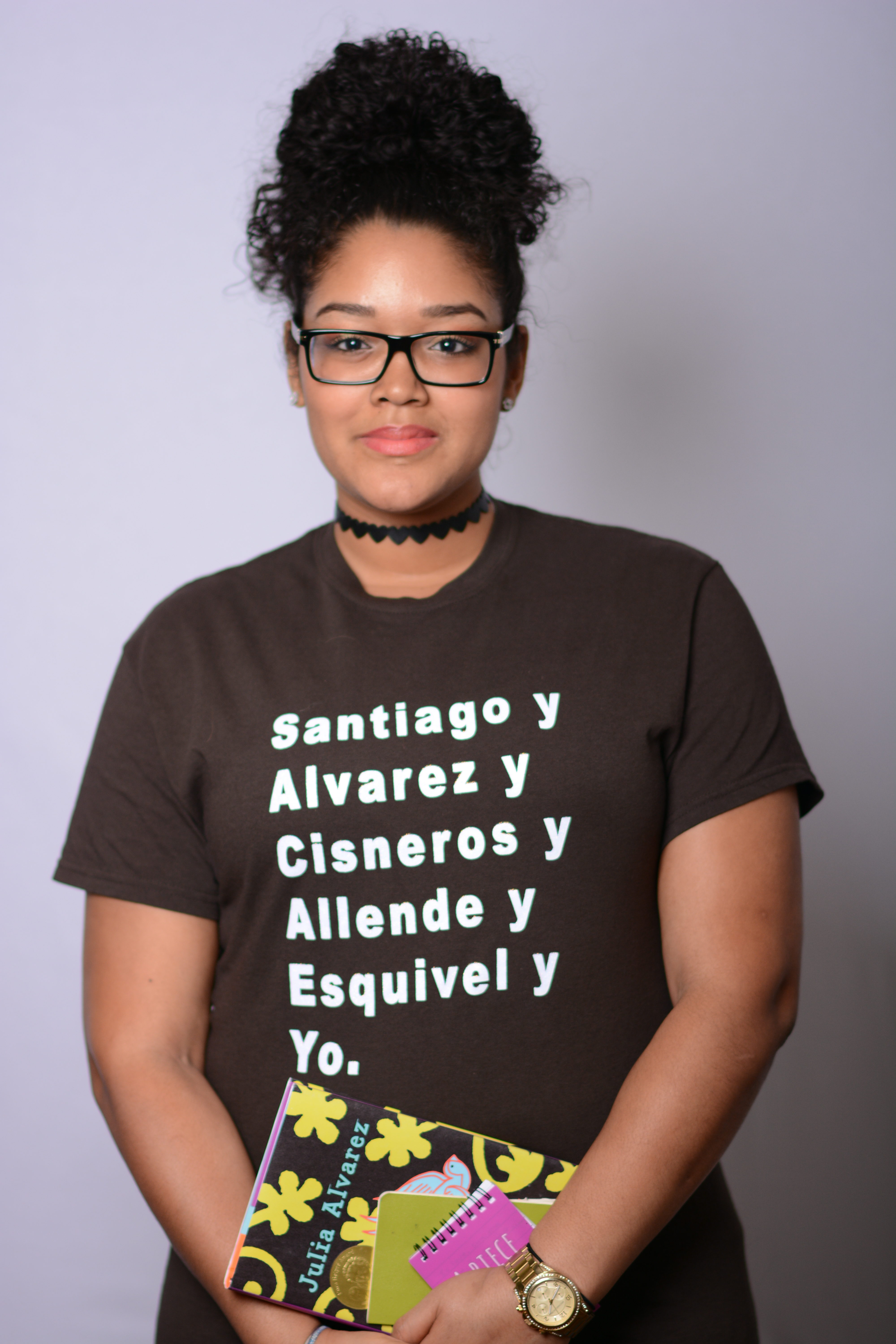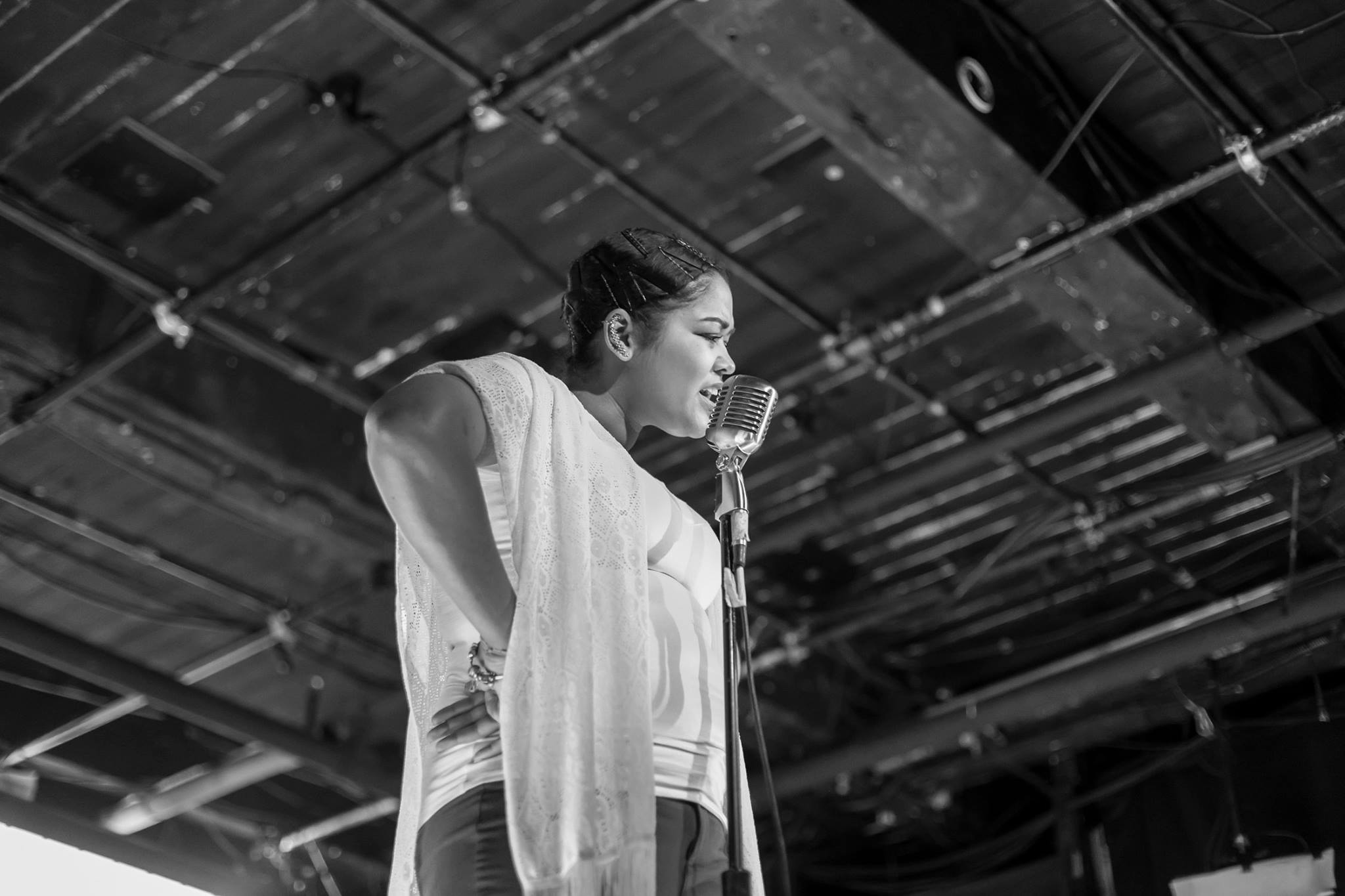I met Mariela Regalado, about two years ago at a women’s empowering event. I remember Mariela walking up to me, introducing herself and sparking conversation, from the moment you meet her you feel welcomed.
Later on that year, we met again at a writing workshop facilitated by Vanessa Martir which gave me the opportunity to learn more about Mariela’s story. Mariela is also a member of my Musa Writing and Book Club and is currently partnering with me in upcoming projects.
Today, I want to share with you her story, a story of resilience and determination to succeed in a society that many times attempts to set the tone for those considered as “minorities” to stay in a box and not raise the bar to their unlimited potential. I hope that after reading Mariela’s story, you are uplifted and ready to go after your dreams regardless of the obstacles you will encounter along the way.
WA: Who is Mariela Regalado, where were you born?
MR: She is Dominicana. That’s first and foremost. I’m an educator, a writer, “a barefoot relambia storytelling….” I was born in Puerto Plata in the Dominican Republic came to Brooklyn with my parents and siblings where we lived in Williamsburg right before gentrification swallowed it whole.I remember the only white people I knew worked in my school or were junkies from the North side. And now you go back and it’s unrecognizable. During September 11, my family and I were actually moving from a one bedroom apartment in Willy B because we could no longer afford it, we were behind on rent, and NYCHA (New York City Housing Authority) had given us an apartment after three years on a wait list. It was a three bedroom apartment in the Marcy Projects, no light or electricity to pay, that was a heavy load lifted for my parents. We were excited because we were all going have our own space. But I remember driving there with my family, the dust, debris, and black smoke still in the air creeping in the sky above us from the towers collapsing. I felt like my world was collapsing too because I didn’t want to live “en los proyectos”.
But it took me being born in DR and visiting multiple times to appreciate the outdoors, how raw unprocessed food tastes, the freedom that it is to walk barefoot, relish the dirt between your toes, how to honor mother nature, to defend the environment and it’s natural resources.
The projects taught me everything I didn’t want to be. There were so many people that were alive but not living. I would leave to school, go to work, and come back and the same people who were outside “chillin” were still there! I hate when people ask me to tell stories about shoot outs and drugs. When I’m ready to tell them I will, right now- they’re gonna stay where they are. I was never ashamed to say I was from there, but it did light this fire under my feet that I would not stay there. When people would hear Marcy- they would automatically say “oh like Jay Z?” And I would say “No, like Mariela!” And I have met Jay Z a few times because he would always come during Christmas to hand out gifts to children. They would come early in the morning usually around Christmas Day, with fancy cars, music blaring, leading U Haul trucks inside- they would leave the suicide doors up and let us take pics in front of their cars or at least get close enough to see the leather interior. I was 15 when I was first handed a Jay Z album. He had given me the blueprint for how to make it out alive. I was going to study his story and make it mine.
WA: In your own words, what it means to be Latina?
MR: I am still discovering what it means to be Latina. I wrote a poem a few years ago: “Yo Soy Latina”, I performed it at open mics, it’s on my one woman show, it was published in La Galería magazine. I always come back to it, add more, and change things about it. I wrote this poem, at a point in my life where all my self education on Latinidad, women studies, Afro Caribbeans, immigration, and self love, all merged. The poem spewed out of me, I remember panicking when I was writing it because I felt like I wasn’t writing as fast as my brain and my heart were thinking !! It’s about our hair, our curves, our intelligence, our music, our food, the way we take care of others, the intensity of our love, the beauty in being multidimensional. Correcting people “I am not Spanish I speak Spanish; Yo Soy Latina!”
WA: You describe yourself as a Dream-Catcher, tell us why and what this means to you, its importance, is this part of your legacy?
MR:
The dreamcatcher is something that has always popped up in my journey throughout life. In times when I wanted something so bad, moments where I was in a dark place, instances when I was lost asking for an answer, it was the nudge I felt the universe would give me.
An example of how it has shown up in my life is; about four years ago I moved back to Brooklyn and started working as a college counselor in a school blocks away from the projects. I was back in my neighborhood, helping students that came from what I survived, tackling the same issues. I was excited, I knew the public education system well enough because I grew up in it. I knew the other side of the fence because of the training I received to be a counselor and the spaces I was allowed to move in because I was “educated”.
Sure enough, the universe did not fail me. When I walked into the building that first day, the windows by my new office were decorated with rows of handmade dream-catchers art students made. I knew I was in the right place.
I buried myself into my career because I proudly state that college counseling in a low income neighborhood advocating for students of color is social justice, which it is something I am passionate about. Learning the way institutions and systems have been built to not serve our students, and then figuring out how to get them here anyways, was and still is hard work to say the least. I was fortunate that my students were hardworking and ambitious. We had a lot of wins and people started noticing. They wanted to interview my students, and they appeared on local news channels, won national scholarships like the one given my UNIVISION and Madison Square Garden. We celebrated and kept working.
One day, I got an email from a local newspaper wanting to interview the woman behind the curtain, that would be me. I was hesitant at first because I wanted the focus to stay on my students, their resiliency and accomplishments. The reporter insisted, and he started mentioning all the things my students had expressed about me. I agreed to be interviewed over the phone. I was told the article was going to be printed the next day. The following day, I wasn’t even at first period yet, when people started texting me the article. There it was in bold, San serif font in the New York Daily News, the title of my article? “Dream Catcher”.
WA: As a first generation Dominican-American, tell us the challenges you have been presented with and how you overcome them?
MR: I think the biggest challenge as a first generation Dominican was that my parents had expectations for me but didn’t know how to help me. For example, they envisioned us going to college, but didn’t know anything about the process it takes to get there. Also, the language barrier, I grew up having to skip school, or leave work early in order to be the translator for my parents. I have been working since I was 11 years old. I started off bagging groceries in a supermarket, to SYEP, to an internship on Wall Street when I was 16. I don’t feel like I overcame them, because I had no choice but to.
WA: As a dedicated College Counselor, one of the things I admire from you the most. What are your thoughts on the DACA situation? Which other resources and ways are you seeking to help your students.
MR: What is happening with DACA is heartbreaking. So much of the narrative around it is pure ignorance. It is amazing to hear how people think immigration works and the misconceptions they have. I work with students who know America to be their home, who are law abiding citizens, and contribute to society but aren’t allowed to exercise any rights or improve their quality of life because they don’t have a 9 digit number?
I am fortunate that every year I’ve had students win the Dreamers scholarship which allows DACAmented students to attend CUNY and select private schools. I think the first thing people can do to help is by educating themselves. Take the time to learn what DACA is, who it serves, and the benefits it gives our overall community. As a college counselor it is a devastating position to be in, having to explain to students why there are people that hate them and protest against them. At our school we host community forums to share resources such as https://www.nysylc.org/, http://www.thedream.us/ and we point them in the direction of different organizations that help with DACA renewal and other services.
I encourage my students to learn about the laws that protect them, understand what DACA means, and to be confident in telling their stories. The biggest misconception I’ve heard is when people say “illegals” are criminals, or when people make immigration and crime synonymous. As a nation, we should move towards giving Dreamers a more permanent path to residency/citizenship, so they can continue to be the invaluable members to society that they already are.
Understanding the basics is so important! I’ve known counselors who didn’t know the difference between a permanent resident card (green card) and DACA. In our counseling community we are always emailing each other scholarships, organizations, and updates/amendments on new laws. A lot of these changes have extremely fine print that we are constantly going to training and reading up on things to make sure we are giving our students and families the right resources.
WA: What advice would you give the youth, specially those considered as minorities when it comes to pursuing their dreams
MR: I always tell my students that we don’t have the privilege of having things created for us so we have a responsibility to create things for us, do not be discouraged nor afraid of your own power, don’t stand in the way of your own success because you are scared of the work that comes with becoming successful.
WA: How would you like to be remembered for?
MR: As someone who took everything that she was giving and kept giving it away. I don’t put myself in a box, I share what I learned because I want others to succeed as well. There is enough room for all of us to shine.
WA: You’re not only a College Counselor, you are also a writer and performer. Tell us about what are you working on artistically.
MR: I am currently working on my one woman show titled “Dear Future… how a Dominicana from Brooklyn learned to love.” I performed it in my beloved Brooklyn about a year ago. Now, it is an hour long and is scheduled to be in a theater February 2018. The play is about different layers of my life that shaped how I love myself, those around me, and how I pursue romantic interests. It is written and performed by me. While doing research for shows I found a lot of examples for one man shows but hardly none for a woman, and almost nothing for women of color. My goal is to do what Whoopi Goldberg and John Leguizamo did with their plays.
I also write about “Dominicanidades”. When I finally got my hands on a book about a Dominican girl I was in High School. It was Soledad by Angie Cruz. In retrospect, it is shocking to know I spent 15 years being an avid reader and not seeing myself in a book until that day. Angie Cruz then lead me to Isabel Allende, Esmeralda Santiago, Julia Alvarez, and more. I want to be able to share my story and captivate someone the same way those stories engaged me. I write about anecdotes from my grandma, subliminals my dad portrayed through his song choices, and the “refranes” my mom always uses.
WA: What’s next for Mariela?
MR: Continue telling stories and catching dreams <3
 Wendy Angulo Productions
Wendy Angulo Productions





